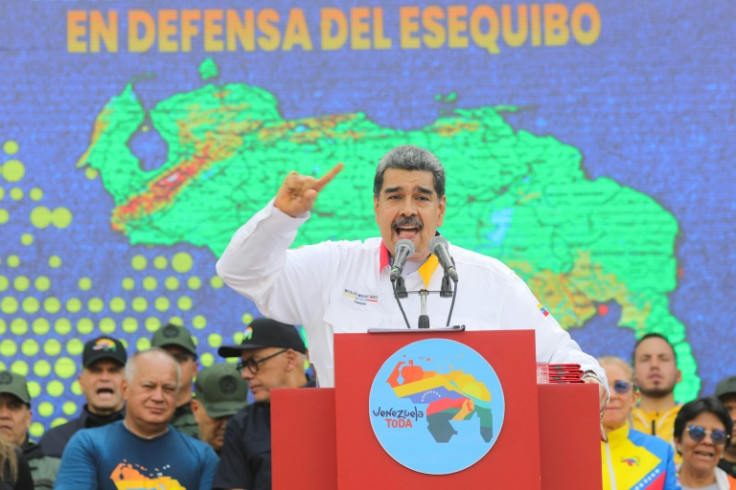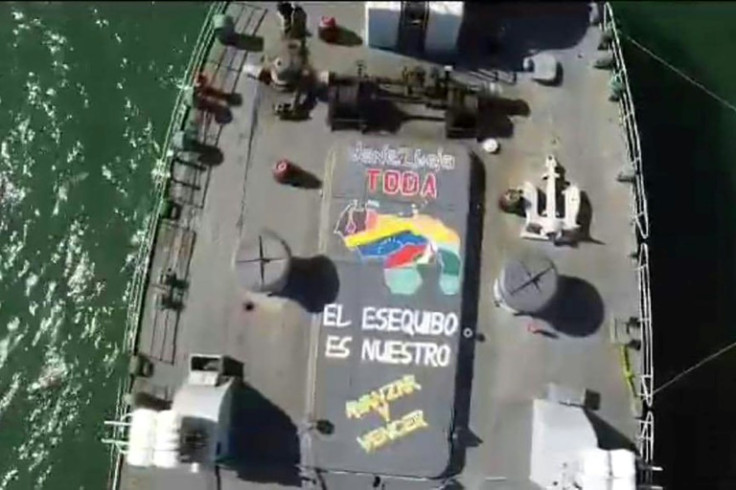
Venezuelan President Nicolas Maduro claimed the United States has built secret bases in the Essequibo, the region that is under Guyana administration but Caracas claims as its own, and that "aggressions" are being planned there.
"We have verified information, they have set (U.S.) Southern Command bases, as well as the CIA to prepare aggressions," Maduro said during a political rally. He went on to say that the alleged attacks would target "the people of Tumeremo," the city the government designated as regional capital.
Despite recent signs of de-escalation with his Guyanese counterpart Irfaan Ali, Maduro said he doesn't really rule the country and is a puppet of the U.S. military and American oil company ExxonMobil, which actively operates in the area.
"Guyana is ruled by the U.S. Southern Command, the CIA and ExxonMobil, and I'm not exaggerating. They control its Congress, the government and the opposition, their defense forces, their police forces," he said.
Caracas has recently increased its military presence along the border with Guyana, with a February report showing that the Maduro government moved light tanks, missile-equipped patrol boats and armored carriers. It has also vowed a "forceful response" if oil drilling begins in the region's contested waters, following the discovery of massive reserves in the area in 2015. Last year, tensions reached higher levels as Guyana started auctioning off oil blocks in the region.

This has prompted the Lloyd's Market Association to designate Guyana's offshore sector as an area of elevated risk, impacting the cost of shipping crude oil and posing potential threats to the nation's booming oil industry.
Nonetheless, the U.S. has downplayed this increased military presence, saying that all movements seen have been of a "very small nature and size and scale and scope." White House Spokesperson John Kirby said the Biden administration has been "monitoring this closely," but the assessment is that there is no current indication that "there's about to be hostilities or that the Venezuelan military would be capable of conducting any significant military activities there."
A report by the Center for Strategic and International Studies said that the Venezuelan military's actions were aimed at sending a message overseas, including the Guyanese government, in a potential attempt to compel the country to negotiate bilaterally and potentially gain favorable terms.
Maduro's government called a controversial nonbinding referendum late last year, its results overwhelmingly approving the creation of a Venezuelan province in Essequibo. That led to a rhetorical seesawing over the past months, combining rhetorical escalations and de-escalations.
© 2025 Latin Times. All rights reserved. Do not reproduce without permission.





